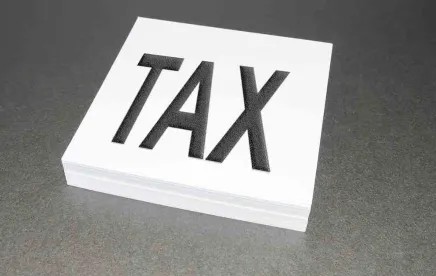The Court of Appeal recently handed down its judgment in the Hoey case. The case is noteworthy because it helps illustrate the extent of HMRC’s powers to collect tax by shifting compliance obligations from one person to another. As can be readily appreciated, this could be particularly of note for directors of companies that have entered into an insolvency process.
Background Facts
The main issues in the case arose from Mr Hoey’s participation in a tax avoidance arrangement involving an employee benefit trust (EBT). In brief, the scheme was intended to allow Mr Hoey to be paid through the EBT without his employer company having to deduct income tax or national insurance contributions (NICs) under Pay As You Earn (PAYE).
Acknowledging that the avoidance scheme failed, Mr Hoey accepted that amounts contributed to the EBT by his employer, for onward payment to him, were earnings from employment and, therefore, chargeable to income tax. However, Mr Hoey argued (rightly) that the principal obligation to pay the income tax lay with his employer under PAYE. HMRC countered (also rightly) that they have a discretionary power to not require an employer to operate PAYE. HMRC asserted that the effect of exercising that discretion is that the tax due can be collected directly from the employee (i.e. in this case, Mr Hoey).
Mr Hoey’s appeal related to the scope and application of HMRC’s discretionary power. In essence, he argued that, even where the discretion is exercised legally, it cannot create or impose a PAYE tax liability on the employee.
Findings
Mr Hoey lost his argument in the First Tier Tribunal, lost again in the Upper Tribunal, and has now lost it, yet again, in the Court of Appeal. The Courts have consistently held that HMRC’s discretionary power to not require an employer to operate PAYE is very wide indeed. The Court of Appeal drew a clear distinguishing line between a tax “liability” and tax “collection”.
The Court emphasised that HMRC does not have any general power to impose, nor even to transfer, tax liabilities. The liability to income tax on employment income always rests with the recipient of the employment income. The PAYE system, therefore, is merely a mechanism to simplify the collection of income tax and NICs; and it is, after all, the collection of tax that defines HMRC’s primary operational purpose. Unsurprisingly, the existence of PAYE does not mean the employee does not have an income tax liability. It follows that, in circumstances where PAYE should have, but has not in fact, been operated, the tax liability of the employee remains undisturbed.
HMRC’s discretionary power
The discretionary power in the PAYE rules, in the words of the Court, “simply enables HMRC to collect the tax from the individual who has the liability to pay the tax due, instead of collecting it from the source of the payment (the employer)”, when it is reasonable to do so. In addition, the discretion is limited only by excising it in a rational manner; again, in the words of Lady Justice Simler in the Court of Appeal, “there is no expressed limit to the circumstances in which an HMRC officer can decide that it is “inappropriate” for the payer to comply with obligations under the PAYE Regulations … HMRC may form the view in the circumstances of a particular case, that it is not appropriate to expect an [employer] to comply with the deduction and/or accounting obligations in the PAYE Regulations.”
Morale of the story
The morale of Mr Hoey’s experience is that HMRC will always seek to recover tax that they consider to be due, using whatever tools and powers are available to them. Post-financial crisis, post-Brexit, and post-pandemic, maximising tax recovery has, unsurprisingly, been especially important. In the PAYE arena, where, for whatever reason, it is [rationally] more practicable to collect tax directly from individual employees instead of the employer, Mr Hoey’s experience suggests HMRC will exercise their discretion to do so. In non-PAYE situations, HMRC are likely to explore all options and available powers – as summarised in our alert– in order to recover taxes due as efficiently as possible in whatever way they can.




 />i
/>i

